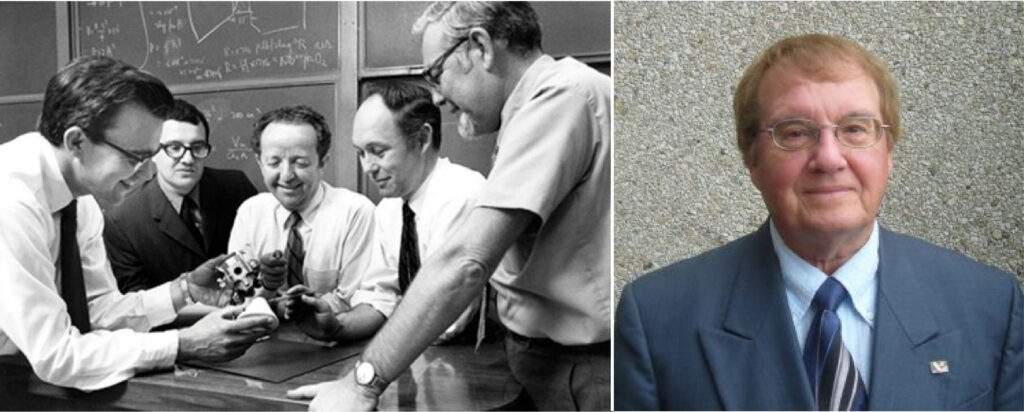
Members of the U of T Engineering community were recognized on November 4 at the virtual 2021 Engineering Alumni Network (EAN) Awards Ceremony. Alumni and friends from around the world joined the lively evening to honour eleven graduates and students for their outstanding professional achievements and contributions to their communities.
Professor Emeritus and former EngSci Chair Rod Tennyson (EngSci 6T0, UTIAS MASc 6T1, PhD 6T5) was inducted into the EAN Hall of Distinction, an assembly of extraordinary alumni, selected for membership by their peers for their lifelong accomplishments. Located in the Sandford Fleming Building, the Hall of Distinction is a familiar daily presence in the lives of students and is often visited by alumni and their families.
“I would like to extend my congratulations to Rod on receiving this recognition and thank him for his many contributions to U of T Engineering,” says Professor Will Cluett, Director of the Division of Engineering Science.
Tennyson has been a pioneering leader in aerospace engineering research and education and over the course of his career spearheaded the creation of new research, entrepreneurship, and teaching initiatives.
In 1970, while still a junior professor at the University of Toronto Institute for Aerospace Studies (UTIAS), Tennyson was part of the U of T team that helped Apollo 13 land safely after experiencing critical damage from an explosion during a mission to the moon.
He became a full professor in 1974, and served as Chair of the Division of Engineering Science from 1982-1985 .
He was later appointed Director of UTIAS for two terms, from 1985 – 1995. Under his leadership a new wing was added to UTIAS facilities to accommodate new research areas. He also implemented a new program that provided incubation laboratory space for start-up companies formed by graduate students. He was appointed founding Director of the University of Toronto’s Government Research Infrastructure Program (GRIP) office , helping to secure over $400 million dollars in funding for researchers across the University over just four years.
He was a Founding Member of the International Space University (ISU) headquartered in Strasbourg, France, and President of the Canadian Foundation for ISU (CFISU) from its inception
in 1987 to 2001. He has also served as a consultant to the Federal Government in the early creation of the Ministry of State for Science and Technology, and as member of the first
Canadian Defence Science Advisory Board.
Tennyson has been a Board member of the Canadian Institute for Aerospace Research and the federal Centre of Excellence, Intelligent Structures for Innovative Systems, and served as Board member and Interim Director of the Ontario provincial Centre of Excellence, the Institute for Space and Terrestrial Science.
Over the last decade, Tennyson has focused his engineering and leadership expertise on bringing clean drinking water to tens of millions of people in the Sahel region of Africa. He has worked tirelessly to bring the 8,000-kilometre Trans-Africa Pipeline (TAP) to reality in the hopes of alleviating human suffering and environmental degradation.